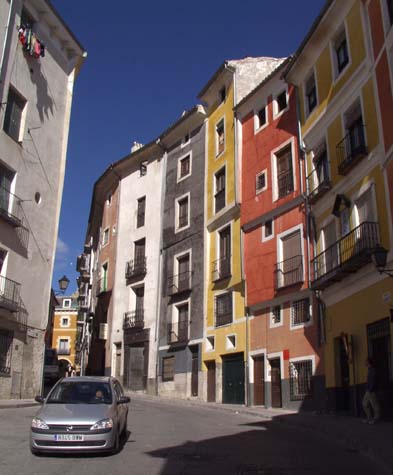 Mr. Lazo is a sergeant and combat medic in the Washington Staet National Guard and is an Iraq War veteran. He testified yesterday about the insanity that is our Cuba travel policy, which forbade him from visiting his 2 sons who live in Havana after returning from Iraq. I'll let him tell the story and make the case against the travel restrictions, as he does so eloquently:
Mr. Lazo is a sergeant and combat medic in the Washington Staet National Guard and is an Iraq War veteran. He testified yesterday about the insanity that is our Cuba travel policy, which forbade him from visiting his 2 sons who live in Havana after returning from Iraq. I'll let him tell the story and make the case against the travel restrictions, as he does so eloquently:Statement of Carlos Lazo Washington State National Guard
Committee on Senate Finance
December 11, 2007
...In Iraq, I was risking my life on a daily basis. All I wanted to do was to
hug my boys and spend even a few hours with them. In a war, time is
precious, life is uncertain, and this visit had profound significance to me.
I flew all the way from Iraq to Miami intending to board a plane to Havana
from there. By that time, though, our government had imposed new
restrictions limiting travel to the island. These new regulations, among
other things, limited family visits by Cuban Americans to once every three
years. The new rules also re- defined the concept of a family.
I returned to Iraq to fight for freedom, to fight for my adoptive country
and to promote American values and ideals in Iraq.
But what about my freedom
to visit my children and my other family members in Cuba? That freedom was
denied to me.
I served and I survived. After more than a year, and I completed my tour of
duty in Iraq, I tried once more to visit my sons and family in Cuba, but I
was again denied a license to do so. Not even the fact that one of my sons
was gravely ill and in a hospital was good enough reason for our government
to allow me to spend a few hours to travel to Cuba.
These Cuba travel restrictions make no exceptions for humanitarian reasons...
What does this mean, no humanitarian exceptions? For example, if I were to
visit my father in Cuba and three months later he were to die, there is no
legal or humanitarian mechanism in place which would allow me to go to his
funeral. These licenses may be granted but once every three years - and
there are no exceptions.
These regulations were supposed to deprive the Cuban government of money and
thereby accelerate the so-called Cuban transition to a more democratic
society. But after four years, all these rules have done is impose even
greater suffering on Cuban Americans here and their families on the island.
These laws have created only a greater sense of family separation and
suffering with no discernible impact on Cuba`s economy or its government.
Wouldn`t it be better if the greatest ambassadors of democracy - Cuban
Americans - could visit the island and relay our message of freedom and
American values? What better way of promoting these basic values intrinsic
in our society than through people to people contacts.
When I tell my American friends about the obstacles that stop
Cuban-Americans from visiting their family members in Cuba, they
automatically assume that they have been imposed by the Castro government.
Even after I explain the truth to them, they cannot believe that the travel
restrictions were created by our government. The real victims of this
cruelty are not the Cuban government or its leadership, but Cuban families
and America`s highest ideals.
These restrictions are cruel, they are inhumane, they are irrational, and
they are unjust. Most of all, rules that prevent families from visiting, and
helping, and loving each other, are un- American. But you have the power to
undo them. These rules may have no humanitarian exemptions, but I cannot
believe there is no humanity here in the United States Senate.
With the greatest respect, I implore you to eliminate these restrictions so
you can reunite Cuban families on both sides of the Florida Straits.
I would like to conclude with this quote by Alex Haley. He said, ``In every
conceivable manner, the family is link to our past, bridge to our future.``
Let me leave you with a question: Will America allow its future to be
defined by the cruelty of these regulations or will we instead win over our
enemies with the love that a united family provides? Thank you.









